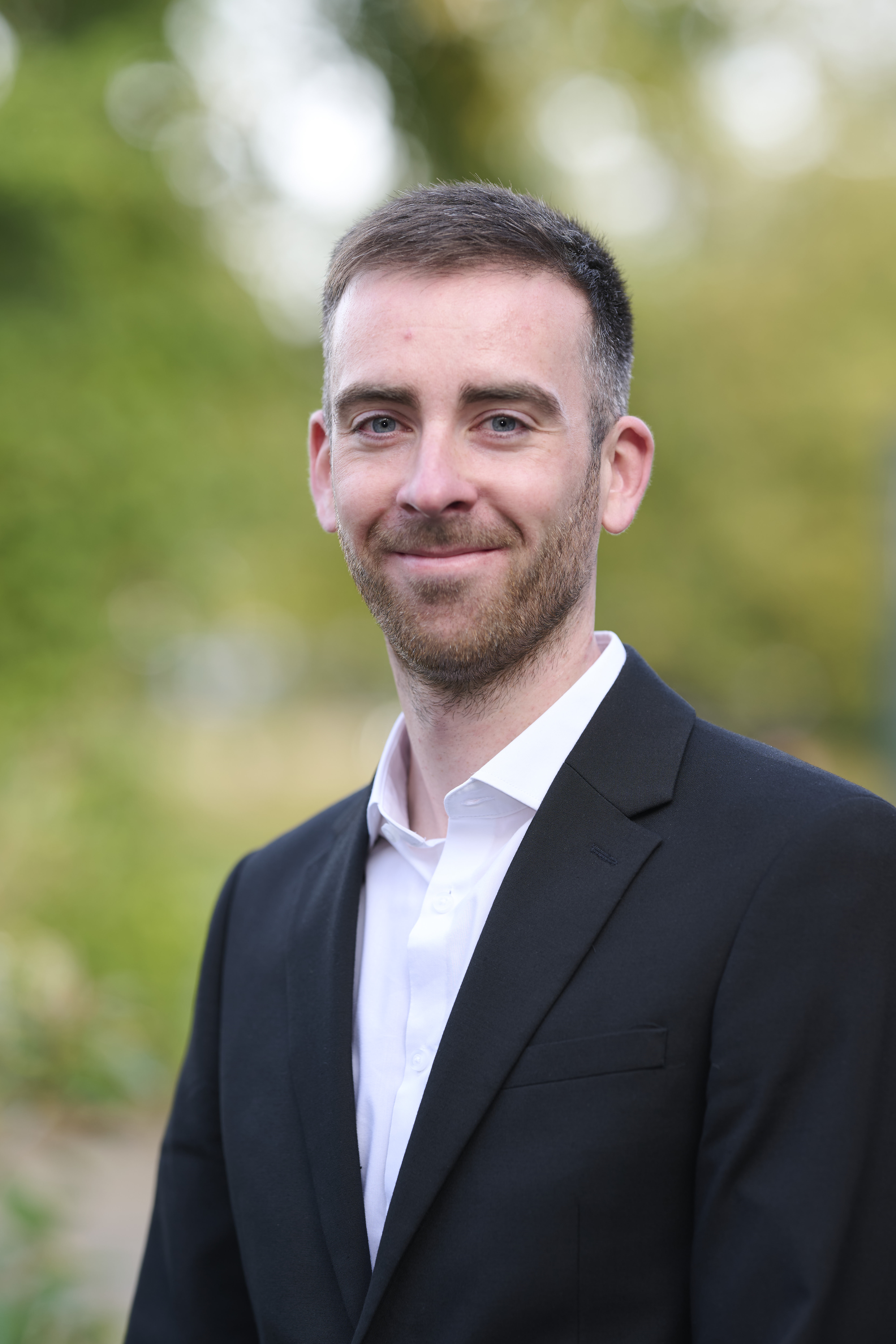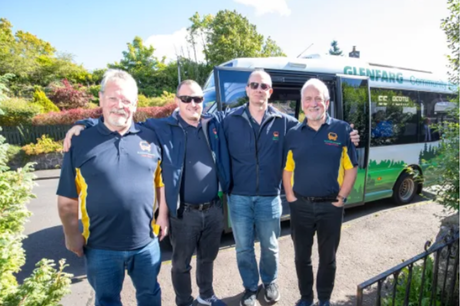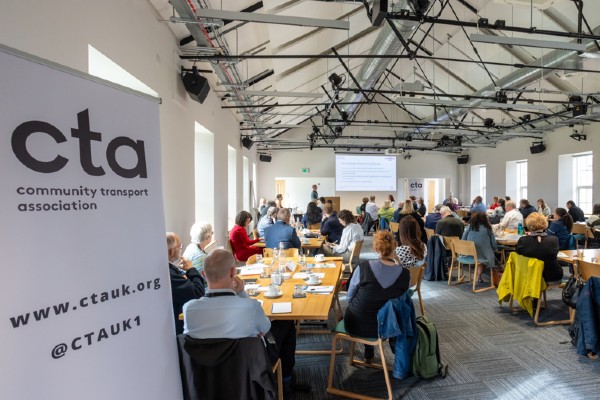Scotland Conference 2024: Takeaways
Our sector faces a funding crisis. The future of Community Transport is on the line. But CTA’s Scotland Conference 2024 was the start of our fightback.
We gathered in Stirling for a Funding Summit on Monday 9 September, because we know we’re stronger when we learn from each other and work together. Here at CTA, we’re proud to lead Scotland’s Community Transport movement and platform diverse voices from across our sector and beyond.
We’re now delighted to share the key messages from the event. We asked all of the contributors to share with us one big ‘takeaway’ – a piece of advice, inspiration or insight from their expertise and experience which could help you, our members. We’ve collated all of them here as a valuable summary for everyone who couldn’t make it on the day, but also as a handy reminder for delegates.
On this page, you can also download presentations from our contributors and find links to funding opportunities from all 12 of the organisations who participated in our ‘Meet the Funders’ session.
Working Together
- How have you changed the way you apply for funding?
- How can Community Transport operators work together to access funding?
- What lessons can be learned from your more collaborative and more innovative ways of fundraising?
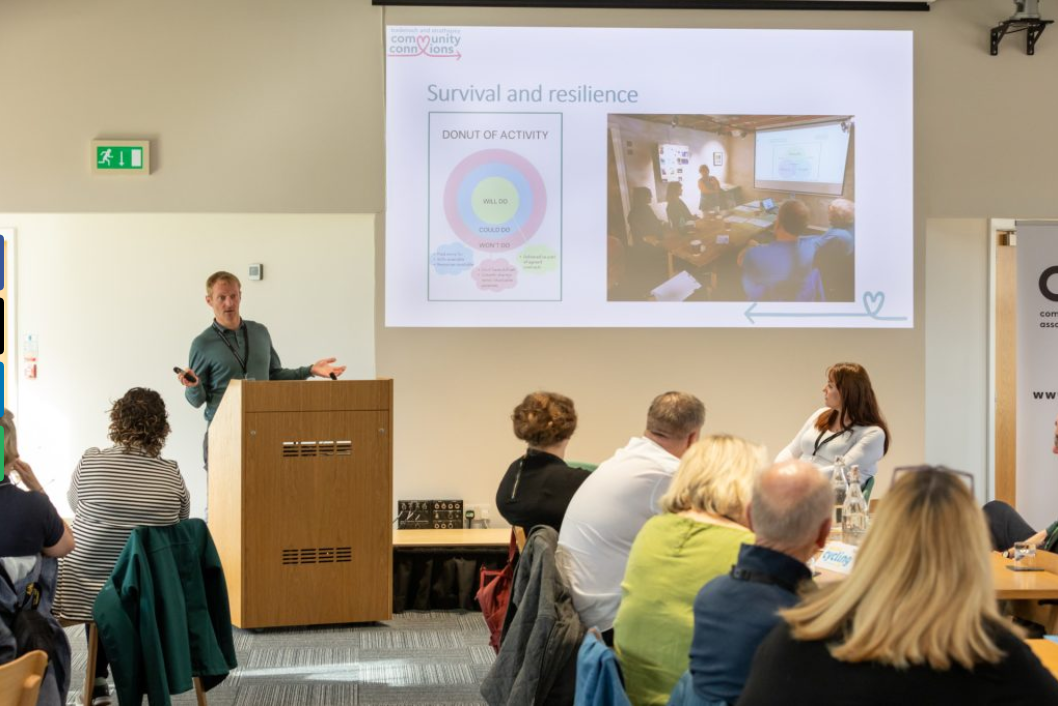
It’s all about impact.
Donald Hall, CEO, Badenoch and Strathspey Community ConnXions. Download Donald’s presentation here.
We’ve taken a ‘whole market’ approach when it comes to collaboration and funding, which is starting to pay off for us.
Kim Ward, CEO, Lothian Community Transport Services
Working with Funders
- How is Scotland’s funding landscape evolving?
- What new ideas, policies or regulations are impacting on independent funders?
- How should this change the way our sector engages with independent funders?
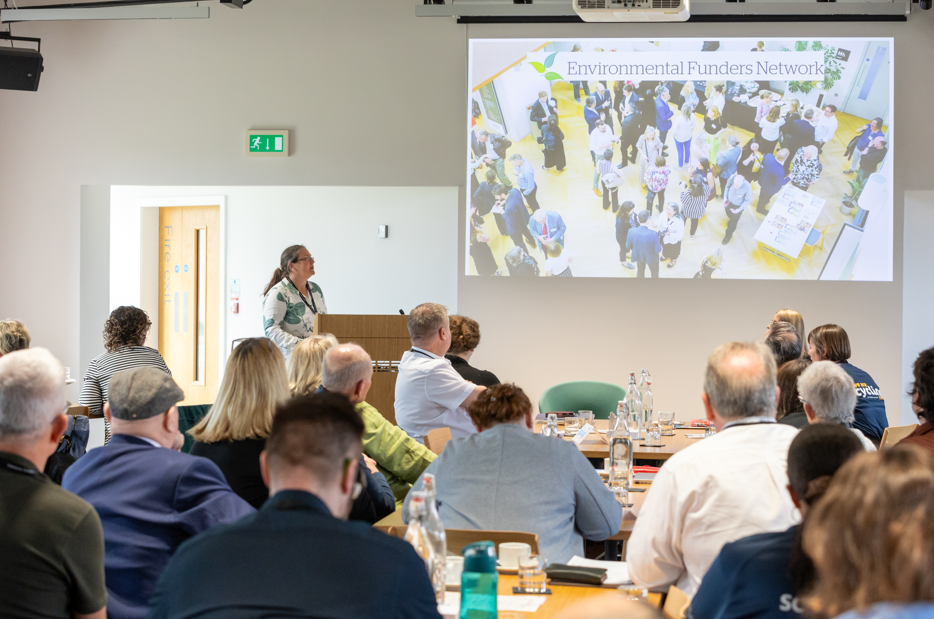
Write and speak passionately about the impact your work has on the people you transport. Tell stories, as well as demonstrate the scale of need for your service. Emphasise the co-benefits to people and the planet.
Julie Christie, Scotland Coordinator, Environmental Funders Network. Download Julie’s presentation here.
It’s essential to evidence need and measure impact. Do an exercise with all of your staff and volunteers to answer the question: ‘What if our service didn’t exist?’
Dr Victoria Armstrong, CEO, CTA
Working with Government
- How can local authorities enable, support and fund Community Transport?
- How can Community Transport operators build better partnerships with local authorities?
- What does best practice look like?
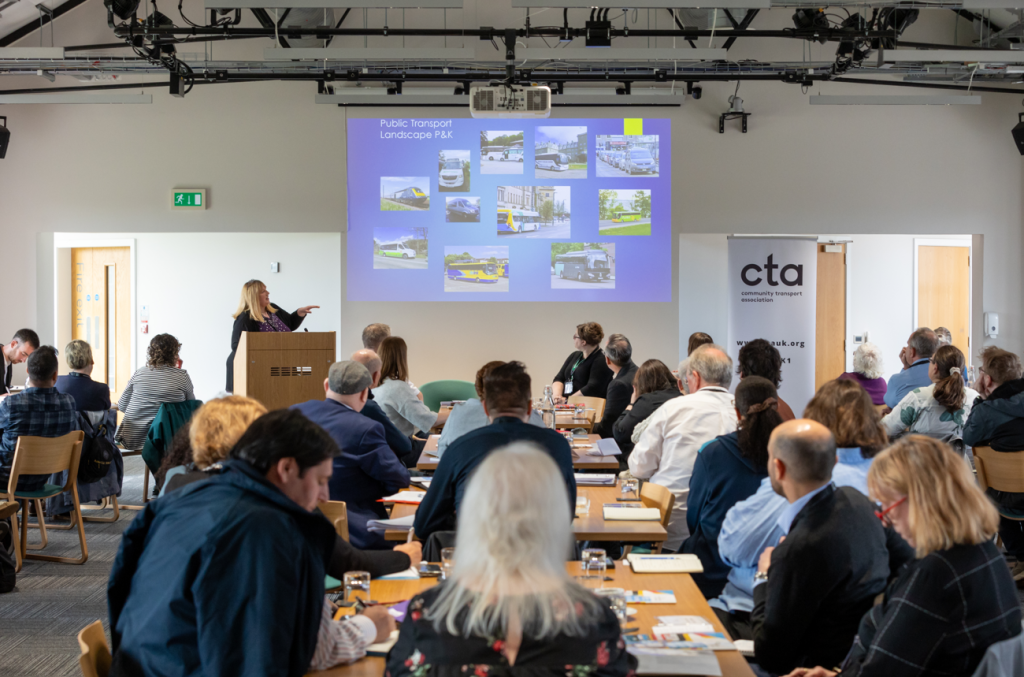
The public-social partnership model combines council and community resources to deliver public transport solutions effectively.
Margaret Roy, Public Transport Team Leader, Perth and Kinross Council and Chair, Association of Transport Coordinating Officers (ATCO) Scotland. Download Margaret’s presentation here.
Local authorities need to engage with Community Transport operators, nurturing and empowering communities and individuals. Budget constraints and other challenges may present barriers. But there are also opportunities to find creative solutions.
Laura Carpenter, Senior Transport Officer (Network & Community), Highland Council. Download Laura’s presentation here.
Workshop #1: Ready, Steady, Funding!
- How can you improve your funding readiness?
- What goes into building a coherent fundraising strategy?
- What do funders look for in a highly competitive environment?
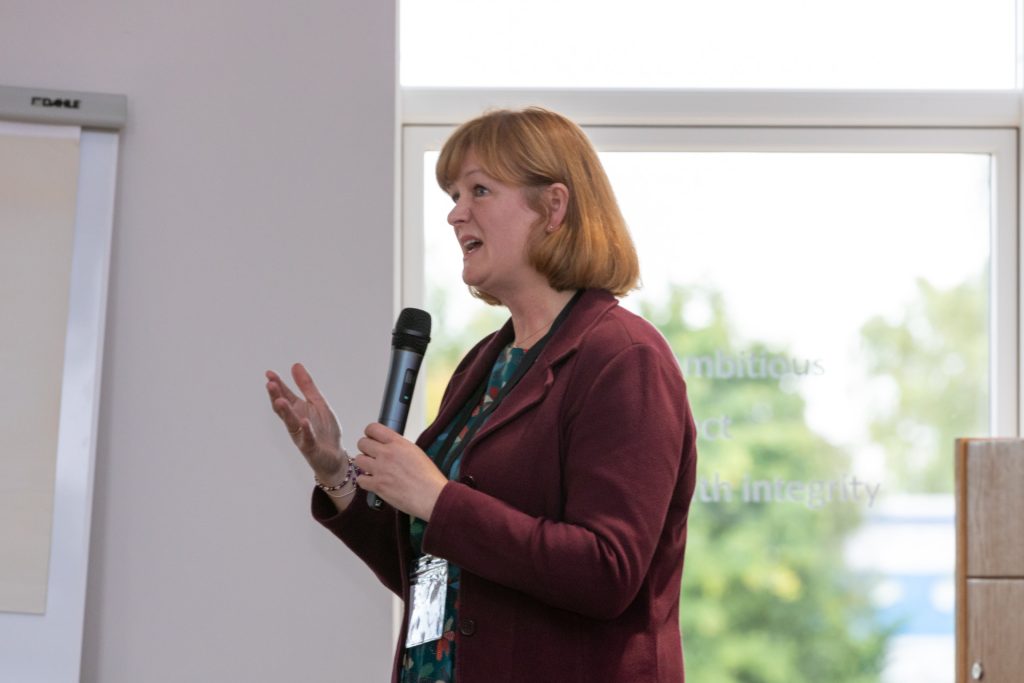
Fundraising is about connecting with people on a human level. Don’t talk to funders about how you need a new vehicle. Instead, tell them about the impact your service has on passengers’ lives, the joy your volunteers get from volunteering, the reason your service exists, and the difference it makes.
Michelle Clarke, Wales Transport Strategy Lead, CTA. Download Michelle’s presentation here.
Workshop #2: Who Wants To Be A Social Enterprise?
- What does it mean to be a social enterprise?
- What are the benefits (and barriers) to being a social enterprise in the Community Transport sector?
- Could becoming more enterprising generate new income and improve your financial security?
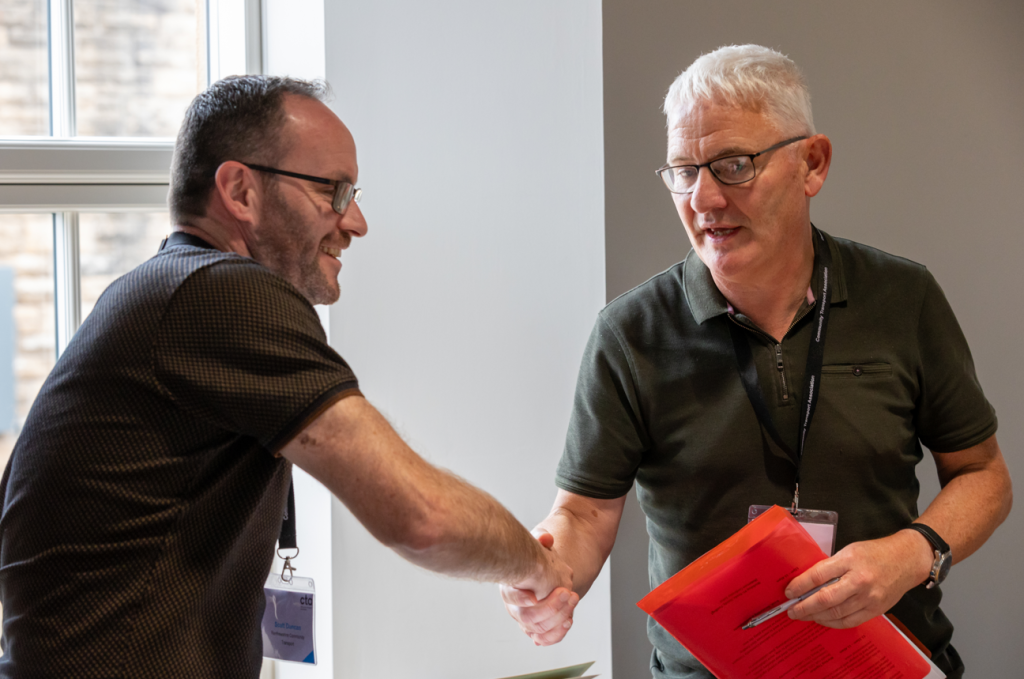
Developing social enterprise activity is a more sustainable alternative to grants and donations, empowering organisations to drive their own strategic direction and development and innovate in terms of their goods and services.
Duncan Thorp, Policy and Public Affairs Manager, Social Enterprise Scotland. Download Duncan’s presentation here.
Social enterprise activity is not a ‘silver bullet’. Most organisations will have a ‘cocktail’ of funding. But it can enable organisations to develop new funding streams and reduce their reliance on grants and funding applications.
John Reid, Transport Manager, South Ayrshire Community Transport
Meet the Funders
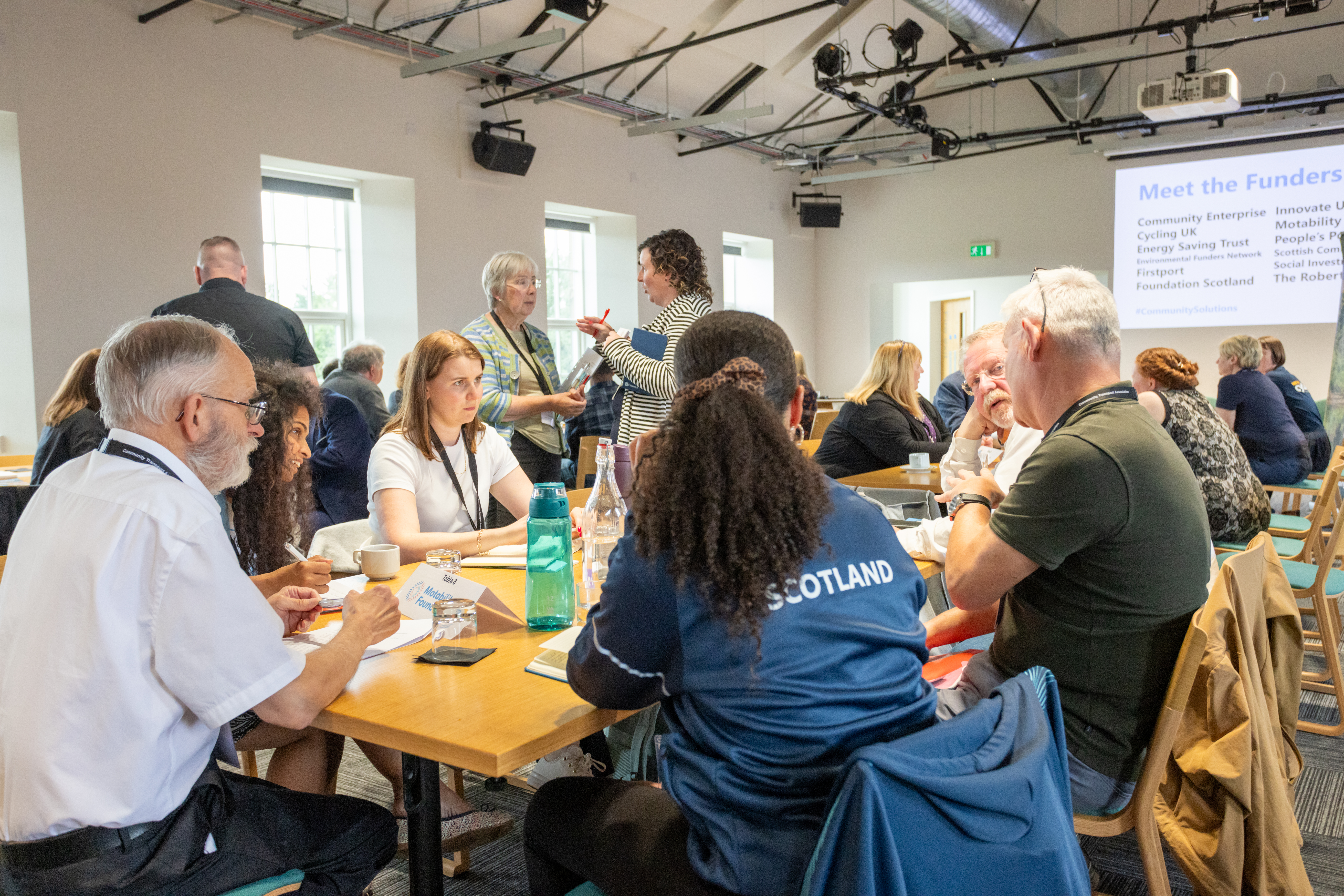
Community Enterprise
- Accelerate – Free support programme for third sector and community organisations to become more sustainable and enterprising.
Cycling UK
- Cycle Access Fund – Getting more people in Scotland cycling by providing grants for bikes and equipment to charities in Shetland or the West, North East or South East of Scotland.
Energy Saving Trust
- Plugged-In Communities Grant Fund – Up to £75,000 to replace a Community Transport vehicle with a zero-emission alternative/
Environmental Funders Network
- Rapid Response Fund – Supporting groups to seize unexpected opportunities or respond to unanticipated crises with a potentially significant environmental outcome.
Firstport
- Pounds for Purpose, Start It, Build It, Boost Fund and Social Innovation Challenge – Grants to start and grow a social enterprise.
Foundation Scotland
- Community Funds – Diverse range of funding programmes, from the local to the national, including wind farm community benefit funds.
Innovate UK
- Business Connect opportunities
- UK Research and Innovation opportunities
- Innovation Exchange – ‘Matchmaker’ network accelerating innovation through connection and collaboration
Motability Foundation
- Community Transport Grant Programme – Helping charities and organisations to make an immediate impact for disabled people by awarding funding to develop, expand and improve Community Transport options.
Wheelchair Sector Grant Programme – Supporting charities and organisations to make an immediate impact for disabled people, by awarding funding to improve and expand their access to good quality affordable wheelchairs.
Active Travel Grant Programme – Helping charities and organisations to improve and expand access to quality and affordable active travel equipment and journeys
- Travelling with Confidence Grant Programme – Helping large and small charities providing travel training schemes to make an immediate impact for disabled people
People’s Postcode Trust
- Grants – Up to £25K for community organisations with no more than an annual income of £250,000 and often with a focus on support for disabled people or working in areas of multiple deprivation
Scottish Community Alliance
- Community Learning Exchange – Funding for hosts and visitors to undertake peer learning and study visits across Scotland
Social Investment Scotland
- Loan Finance – Loan funding and business support for social enterprises, charities and community groups, including loan finance for vehicle purchases
The Robertson Trust
- Community Transport Fund – New capital funding for Community Transport vehicles coming soon.
Campaigning for Change
- What makes for a successful transport campaign?
- How can you find allies and build alliances to protect Community Transport funding?
- How can the Community Transport sector be part of the campaigns for bus franchising and free bus travel for people seeking asylum?
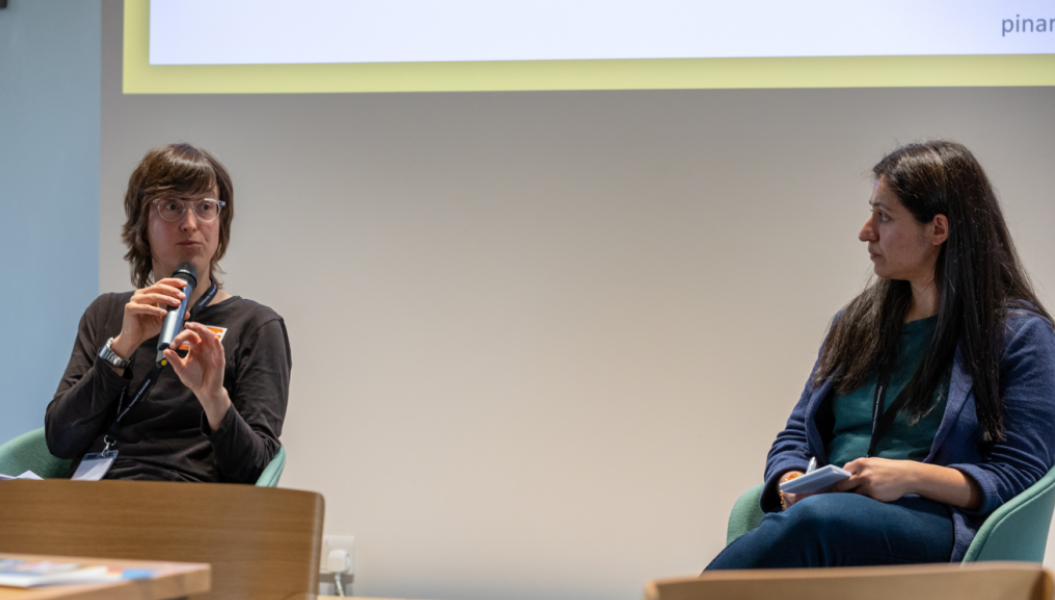
The Community Transport sector needs to engage with the bus franchising process from the start to ensure that the framework that is drawn up (by SPT and other transport authorities) has contracts which will be suitable for you.
Ellie Harrison, Chair, Get Glasgow Moving. Download Ellie’s presentation here.
To make a successful campaign, share your expertise and keep networking.
Pinar Aksu, Human Rights and Advocacy Coordinator, Maryhill Integration Network. Download Pinar’s presentation here.

